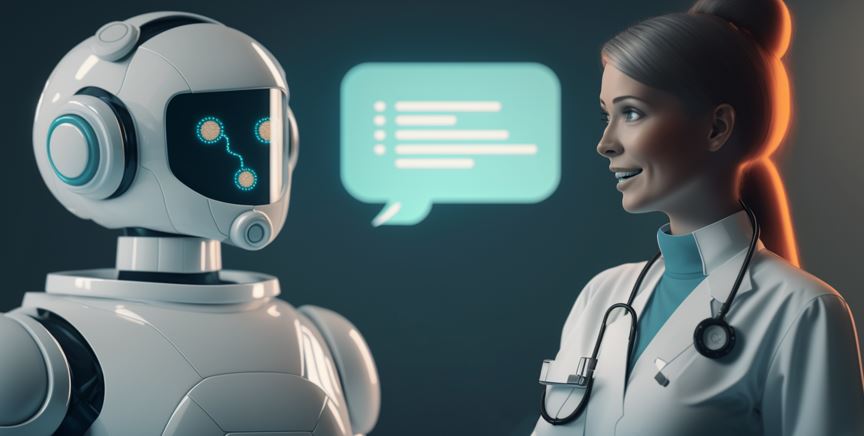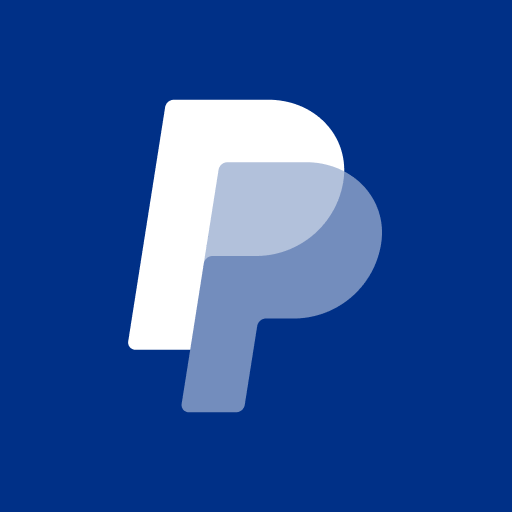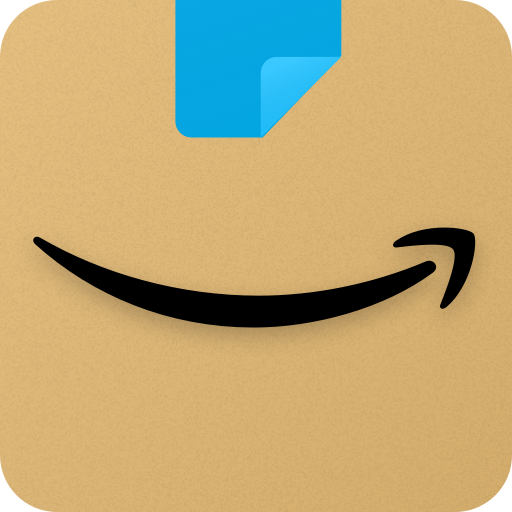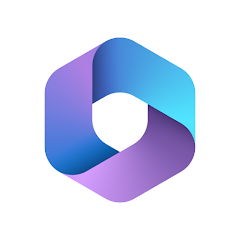ChatGPT and its influence on medicine
25th May 2024
Jeff Patton
This article explores the impact of ChatGPT, a modern AI technology, on the field of medicine and delves into its applications spanning from medical chatbots to drug discovery. It examines how ChatGPT operates and its diverse applications in medicine, including patient education, electronic health records, and personalized treatment plans.
The article also addresses the benefits and concerns regarding the use of ChatGPT in the healthcare industry. Furthermore, it looks into the future of ChatGPT in medicine, considering advancements in natural language processing and ongoing research and development. Join us on this journey as we delve into the realm of ChatGPT in medicine.
What is ChatGPT?
ChatGPT, an advanced AI language model, has made a significant impact on the medical field by incorporating healthcare technology. This innovative tool utilizes cutting-edge AI algorithms to enhance communication and decision-making support in clinical settings.
Through its natural language processing capabilities, ChatGPT has revolutionized the medical industry by offering invaluable assistance for patient care, diagnosis, and treatment to healthcare professionals. By reviewing extensive medical data and research, ChatGPT aids doctors in making more informed decisions, ultimately resulting in improved patient outcomes and personalized treatment plans.
The integration of technology in the medical sector has transitioned towards more efficient and automated processes, with ChatGPT at the forefront of advancements in telemedicine, virtual consultations, and real-time monitoring.
How Does ChatGPT Work?
ChatGPT operates using advanced artificial intelligence capabilities that enable it to analyze large volumes of data, facilitate knowledge transfer, and serve as a powerful language model. Its operations consist of learning algorithms that process and generate responses based on input data. ChatGPT makes use of data analysis intricacies to leverage a variety of techniques such as natural language processing, sentiment analysis, and pattern recognition. These mechanisms allow it to extract insights, understand context, and provide appropriate responses. ChatGPT is successful at knowledge transfer because it can integrate pre-existing information with new data inputs and enables the seamless transfer of knowledge. As a top language model, ChatGPT uses AI-driven solutions to simplify interactions, improve communication efficiency, and aid medical professionals in more complex decision-making.
What are the Applications of ChatGPT in Medicine?
Applications of ChatGPT in the field of medicine encompass virtual consultations, support for medical research, telemedicine services, and personalized patient care. This tool has significantly enhanced communication and information exchange within the medical and healthcare sectors.
By utilizing ChatGPT, healthcare professionals can conduct virtual consultations with patients, delivering timely advice and guidance remotely. The integration of ChatGPT in medical research has expedited the analysis of extensive datasets, identification of patterns, and generation of valuable insights for scientific studies.
Its role in telemedicine services has facilitated seamless connectivity between patients and healthcare providers, bridging geographical barriers and ensuring access to high-quality healthcare. ChatGPT contributes to enhancing patient care by offering personalized recommendations, treatment plans, and precise clinical decision support.
Its transformative influence is reshaping healthcare practices through effective knowledge dissemination and improved clinical outcomes.
1. Medical Chatbots
The utilization of ChatGPT in medical chatbots has significantly enhanced the way patient information is collected and shared, equipping healthcare providers with AI tools to optimize patient interactions and deliver personalized clinical support. These AI-driven chatbots play a crucial role in enhancing patient information gathering by efficiently collecting data on symptoms, medical history, and treatment regimens.
By accurately processing this data, healthcare providers can make evidence-based decisions and offer personalized recommendations to patients. The improved communication facilitated by chatbots promotes better understanding between medical professionals and patients, leading to enhanced clinical outcomes and patient satisfaction. ChatGPT has transformed medical consultations by providing valuable clinical support to healthcare providers, enabling them to deliver high-quality care more efficiently and effectively.
2. Patient Education and Support
ChatGPT enhances patient education and support by generating personalized treatment plans, offering medical advice through virtual assistants, and enhancing patient outcomes through increased engagement and assistance. Utilizing advanced technology, ChatGPT delivers crucial support to individuals throughout their healthcare journey.
For instance, the creation of personalized treatment strategies tailored to each patient's specific needs fosters a deeper understanding of their condition and the necessary treatment steps. The implementation of virtual assistants powered by ChatGPT technology enables swift and efficient access to medical advice, reducing patient anxiety by providing clarity on the next stages of their health journey.
This seamless integration of technology serves to boost knowledge and encourage better adherence to treatment options, ultimately resulting in improved health outcomes and a better quality of life.
3. Electronic Health Records
The integration of ChatGPT with electronic health records has optimized medical documentation, improved data retrieval processes, enhanced healthcare communication, and bolstered data security measures within healthcare facilities. ChatGPT ensures healthcare providers can efficiently and accurately record patient information, leading to better and more accurate diagnoses and treatment plans.
Its ability to retrieve data quickly means healthcare professionals can access patient records promptly, improving decision-making and patient care with the latest health data. In healthcare settings, ChatGPT's secure communication feature ensures that sensitive patient data remains confidential and meets regulatory standards, protecting patient privacy and maintaining trust in the healthcare system.
4. Drug Discovery and Development
ChatGPT plays a crucial role in drug discovery and development by supporting medical research, offering valuable research insights, contributing to disease management strategies, and providing innovative treatment recommendations based on the latest research advancements.
With its capacity to analyze extensive scientific data effectively, ChatGPT assists researchers in identifying potential drug candidates and predicting their effectiveness. By simulating various molecular interactions and drug pathways, ChatGPT expedites the screening process and pinpoints promising avenues for further investigation.
Its natural language processing capabilities grant swift access to research literature, facilitating the synthesis of information from diverse sources to guide evidence-based decision-making in pharmaceutical research and development.
What are the Benefits of Using ChatGPT in Medicine?
The uses of ChatGPT in medicine include:
- Improved outcomes
- Revolutionary medical breakthroughs
- More efficient healthcare operations
- The delivery of personalized medical solutions to those in need
ChatGPT has been shown to enhance the quality of healthcare by:
- Improving patient satisfaction
- Providing quick and precise answers to patient inquiries
- Improving patient communication
- Enhancing the patient experience
ChatGPT in medicine also assists in care coordination by:
- Automating administrative tasks
- Enabling smooth sharing of information between healthcare providers
- Ensuring that patients receive timely and appropriate care
These advancements not only contribute to better health outcomes but also foster improved relationships between providers and patients.
1. Improved Efficiency and Productivity
AI technologies like ChatGPT enhance efficiency in healthcare settings by optimizing healthcare practices and seamlessly integrating advanced technology solutions into medical workflows. This integration not only enhances the accuracy and speed of decision-making processes in healthcare settings but also reduces operational costs and enhances patient care. By automating routine tasks such as patient scheduling, medical record documentation, and appointment reminders, healthcare professionals can dedicate more time to providing high-quality care and personalized treatment to their patients. The streamlined workflow processes facilitated by technology enable healthcare providers to allocate their time more effectively, ultimately enhancing patient outcomes and satisfaction levels.
2. Increased Access to Healthcare
ChatGPT enhances healthcare access by enabling telehealth services, streamlining healthcare delivery processes, facilitating remote monitoring initiatives, and improving patient support systems.
By leveraging the advanced natural language processing capabilities of ChatGPT, healthcare providers can easily communicate with patients, conduct telehealth consultations, and swiftly address medical inquiries. This enables medical professionals to remotely monitor patients, analyze real-time health data, and take prompt action if necessary, leading to enhanced proactive health management and treatment outcomes.
Moreover, ChatGPT's user-friendly interface enhances patient engagement by offering personalized resources, reminders, and guidance, thereby promoting better patient adherence to treatment plans and enhancing overall patient wellness.
3. Personalized Care and Treatment Plans
ChatGPT enhances patient care by offering personalized treatment plans, leveraging medical expertise, fostering care coordination among healthcare providers, and ultimately boosting patient satisfaction levels.
The capability of ChatGPT to tailor treatment plans according to individual patient requirements ensures that healthcare interventions are more effective and targeted, leading to improved health outcomes.
By harnessing medical knowledge, the technology can deliver precise recommendations and interventions that align with current medical research and best practices.
Through facilitating enhanced communication and collaboration among healthcare providers, the technology promotes a more cohesive approach to patient care, resulting in increased levels of patient satisfaction and enhanced overall healthcare experiences.
What are the Concerns and Limitations of ChatGPT in Medicine?
The concerns and limitations of ChatGPT in medicine encompass the general challenges of implementing AI in healthcare, biases and inaccuracies, ethical considerations in medical decision-making, and the significance of data security in healthcare.
Despite the transformative potential of ChatGPT in offering medical assistance and diagnosing diseases, several factors restrict its effectiveness.
One major challenge in utilizing ChatGPT for medical assistance is the accuracy of the information provided. Healthcare-specific obstacles like medical terminology and the need for context-specific data can present difficulties for AI systems.
The data used to train ChatGPT models may contain biases, resulting in responses that are inaccurate or culturally inappropriate.
Another ethical concern regarding the use of ChatGPT in medicine pertains to the ethical implications of using AI for medical decision-making. This raises questions about how accountability and informed consent should be addressed when AI determines patient outcomes.
Additionally, data security and privacy are significant considerations in medical settings when using ChatGPT, as safeguarding patient information is essential for upholding trust and confidentiality in healthcare environments.
1. Lack of Human Interaction
A notable limitation of ChatGPT in medicine is the lack of human interaction, which can decrease patient engagement, limit direct clinical expertise, reduce the integration of innovative technologies, and impede interdisciplinary collaboration within medical contexts.
The absence of human interaction hinders effective patient engagement, as patients may feel less connected or understood without in-person interactions with medical professionals. In medical practice, the clinical expertise of healthcare providers in assessing and diagnosing patients through subtle cues and non-verbal communication is vital for effective care.
A combination of automation and human oversight is essential for incorporating new state-of-the-art technologies in medicine. To address these challenges, interdisciplinary collaborations among healthcare professionals are crucial.
2. Potential for Bias and Inaccuracies
One limitation of ChatGPT in medicine is biases and inaccuracies, which can impact the diagnostic accuracy, medical documentation precision, and reliability of treatment recommendations generated by the system. These biases and inaccuracies stem from the constraints of the underlying dataset used to train ChatGPT, leading to skewed recommendations and dissemination of incorrect information.
If the training data lacks diversity, or is incomplete or outdated, the AI may struggle to provide comprehensive and precise responses. Biases in language usage or cultural nuances in patient-doctor interactions might also influence how the AI interprets conversations and offers subsequent recommendations.
To mitigate these risks, developers can diversify training datasets, implement mechanisms for bias detection and correction, and ensure regular updates to align the AI model with evolving medical standards and practices.
3. Privacy and Security Concerns
Privacy and security risks associated with ChatGPT in the medical field pertain to medical data analysis, information exchange processes, and the transmission and storage of confidential patient data. Stringent data security practices are essential to address these concerns.
In terms of medical data analysis, ChatGPT and similar AI-powered technologies may analyze patient data inaccurately, posing a greater risk of unauthorized access and misuse of sensitive medical information. For information exchange processes, integrating AI tools like ChatGPT in healthcare settings requires secure communication protocols that meet high standards to ensure the safe and efficient transfer of data between healthcare providers and the AI platform, potentially exposing a vulnerability.
Additionally, as the use of ChatGPT expands, safeguarding patient records during transmission and storage becomes increasingly crucial. Employing encryption, access controls, and regular security audits will play a vital role in upholding patient confidentiality.
What Does the Future Hold for ChatGPT in Medicine?
In the future of medicine, exciting advancements are expected with the continued improvement of AI, increased integration of technology into medical practices, and the transformation of healthcare decision-making through AI-driven solutions.
One of the significant promises of ChatGPT lies in enhancing patient care through personalized interactions and improved response times. As AI advances, ChatGPT is poised to facilitate quicker diagnoses, recommend treatments based on extensive data analysis, and support doctors in making more informed decisions.
With the integration of technology, doctors will have the opportunity to leverage ChatGPT to enhance their knowledge and decision-making processes, benefiting from real-time assistance in complex case evaluations and access to regularly updated medical research. The enhanced integration of AI-driven solutions into medical practices is expected to result in increased efficiency, precision, and patient-centered care.
1. Advancements in Natural Language Processing
The ongoing advancement of ChatGPT capabilities in natural language processing is poised to revolutionize healthcare by enhancing knowledge transfer, patient interaction, medical education, and facilitating groundbreaking research insights. These advancements are reshaping information sharing and exchange in healthcare, enhancing patient engagement and relationships with healthcare providers, revolutionizing traditional medical education approaches, and enabling the exploration and dissemination of groundbreaking research discoveries. ChatGPT's evolving capabilities stand at the forefront of this transformation, harnessing its ability to comprehend and generate human-like text to enhance communication and knowledge dissemination across diverse healthcare environments, ultimately leading to enhanced patient care and the discovery of innovative medical breakthroughs.
2. Integration with Other Technologies
The integration of ChatGPT with other cutting-edge technologies will foster interdisciplinary collaboration, optimize healthcare delivery mechanisms, enhance remote monitoring capabilities, and expand the utilization of AI tools in various medical settings. This integration presents a prime opportunity to harness the combined strengths of different technologies to revolutionize the way healthcare is delivered.
By merging ChatGPT with complementary tools like IoT devices, data analytics platforms, and telemedicine solutions, healthcare providers can create a seamless ecosystem that promotes efficient communication, data sharing, and decision-making processes. This collaborative approach not only improves patient care but also enhances efficiency, accuracy, and overall outcomes in healthcare delivery.
Leveraging these integrated technologies results in a holistic healthcare system that is better equipped to address diverse patient needs and challenges.
3. Further Research and Development
Continued research and development efforts are expected to drive medical breakthroughs, improve data analysis capabilities, broaden ChatGPT functionalities, and leverage medical expertise to discover new opportunities for healthcare innovation.
Medical progress serves as the foundation for advancements in the field. Ongoing research initiatives have the potential to unveil new treatments, diagnostic methods, and technologies that enhance patient outcomes and elevate the effectiveness of healthcare services.
The expansion of data analysis capabilities enables a deeper understanding of complex medical datasets, leading to more precise diagnoses and personalized treatment approaches. Furthermore, the enhancement of ChatGPT functionalities facilitates efficient data processing and interpretation, aiding in the streamlining of healthcare workflows and decision-making processes.
Collaboration among researchers, data analysts, and medical professionals is essential in harnessing collective expertise to drive innovations that may revolutionize the medical sector.















